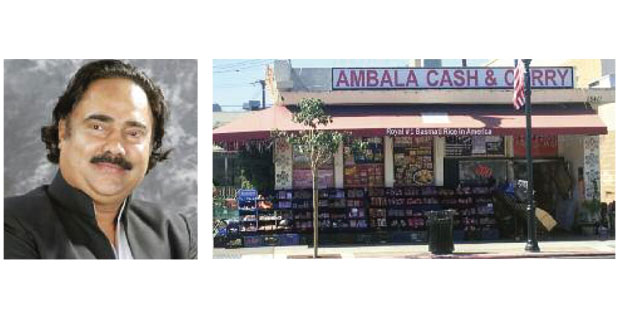Emperor of palates
They call Artesia, Los Angeles’ Little India, and not for nothing. Indian curry joints, saree and jewelry stores, dot the colorful ...
There is no sincerer love than the love of food.
—George Bernard Shaw, Irish playwright
They call Artesia, Los Angeles’ Little India, and not for nothing. Indian curry joints, saree and jewelry stores, dot the colorful shopping landscape either side of Pioneer Boulevard. Here the familiar aroma of Rasbhog’s lip-smacking menu has been a top draw for customers. They regularly line up to gorge on authentic Indian cuisine, much like bees drawn to honey. Rasbhog is a premium Indian vegetarian food destination, and the Indians in southern California just seem to love it.
Then, who’s behind Rasbhog?
Well the story leads us to Munish Makkar who came to the USA from India in 1986. In his heart, Munish was an entrepreneur first, and had a keen nose and a sharp eye for business. He set up a jewelry store with a partner in North Hollywood, and in no time gave it the Midas touch. America’s beautiful people just kept walking in and out of it, and the cash registers, we’re told, never stopped ringing. But within a year, in spite of the success, he decided to give up his jewelry business, and sold his stake to his partner.
Now he wanted to be a part of the food and beverage industry. That is how Hurry Curry was born in 1987. It was located in Venice, about an hour’s drive from where Artesia is, and was among the first Indian restaurants on the west coast. As Irish playwright Bernard Shaw says, “there’s no sincerer love than the love of food.” Munish somehow knew and understood this secret well, and it didn’t take him long to cash in on his new passion big time. Within a matter of months he opened three other restaurants along the boardwalk on Venice beach. Now he had managed to go beyond Indian food and was serving up pizzas and Mediterranean kebabs as well. Like in jewelry, he’d tasted success early in the food industry as well.
Sometime in the early 1990s, Munish was looking to purchase some gold ornaments, something he was well acquainted with. He was at a shopping center in Artesia, and Little India gave him big ideas. Now he wanted to bring in spices that would tingle the palates of west coast Americans, and Indians alike. Along with a partner, Munish bought out Ambala Cash and Carry, an Indian grocery store.
The Ambala Cash and Carry story is a dream one for immigrants. Many hit USA thinking they’d get rich overnight. While it is truly the land of opportunities, getting rich overnight is not guaranteed. One needs plenty of pluck, guts and great entrepreneurial skills to make a business click from day one. It seems Munish had it all. As business picked, he managed to buy out his partner’s stake, and became sole proprietor of the store. The City of Artesia had become an integral part of Munish Makkar’s life. He now owns another grocery store, Surati Cash and Carry, across the road from Rasbhog. He also has started the Artesia Sports Bar, a popular place where youngsters can hang around.
Munish Makkar’s story and that of Ambala Cash and Carry, and Rasbhog, are worth telling. In numerous drawing room conversations people who wish to do their own thing usually want to start with their own restaurant. In Munish, they have the ideal role model. He’s done it in the heart of Los Angeles, California. And won many a foodie’s heart too.
From the book Indian Americans in Greater Los Angeles Area by India Empire Publications











Comments.